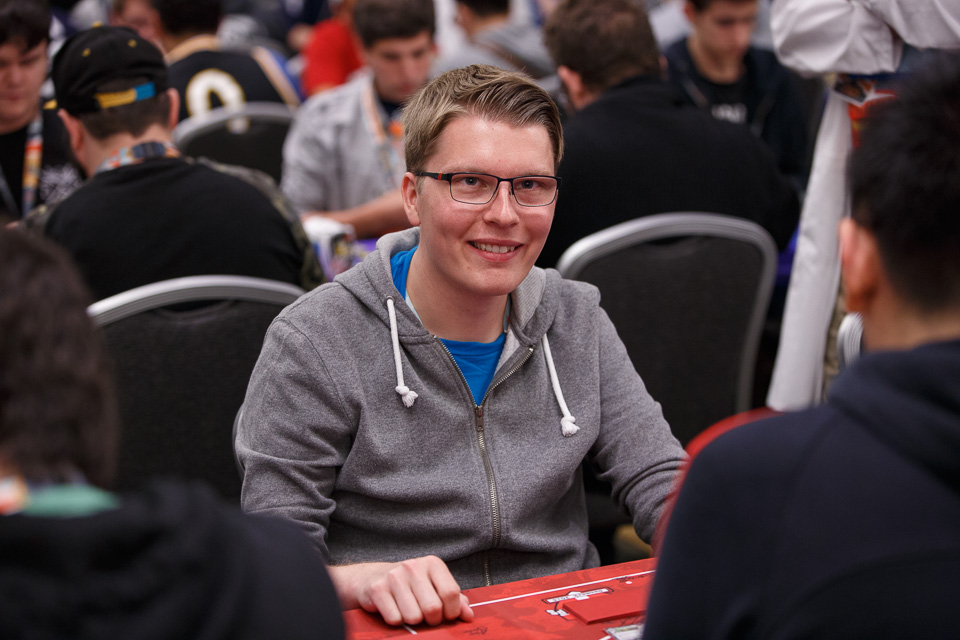Building Trust With Your Opponents
Hello everybody! My name is Steffen Eriksen and today I will be writing about how you can build trust with your opponents. Inspired by the blog post of John Kettler (here), I will write my version of how YOU can earn the trust of your opponents while adhering to the “spirit of the game”, and play a fun and fair game of Pokémon TCG or any other game you might be playing.
Over the last few years, the competitive level of Pokémon TCG has achieved new heights with an increased prize pool, and the introduction of cash prizes. The downside of this is that it also has given more incentive for the players with a less than concrete moral compass to give in to cheating. While being able to spot cheating is undeniably a very important topic, it also important to keep in mind what you can do to contribute to a fun and fair game, setting a good example for new as well as more experienced players.
What can you then do to build trust with your opponents? Actually, it is not that difficult. A series of relatively small things, when put together, can make for a clear way of playing, and thus helps you build trust with your opponent.
First, you should announce all actions that you make. Not only when you declare your attack, but also for all the smaller action that you will make during your turns. By doing so, you not only make it clear for your opponent what you are doing, but you also make it clear for yourself, and you make it easier to catch potential game errors. Second, mind your pace of play. On one hand, a good player can regulate his pace of play, and be able to play fast at times when needed. However, one thing is playing fast; another is rushing. Do not rush your actions. Try to keep it in a pace where you can still clearly distinguish between the different actions you are doing, and do not become a big blur.
Third, do not be afraid to call out your own mistakes. Even the best players sometimes make horrible gameplay errors or just a straight out misplay. Making your opponent aware of the situation as soon as you catch it is not only a good idea for helping to solve the issue, but it is also good to be honest. Likewise, do not be afraid to call a judge on yourself, should you make a gameplay error.
Fourth, keep your side of the playing field in an orderly fashion. That is, follow the guidelines for how the playing field should look, and do not just slam your cards randomly down on the field. Keep your deck in a north/south alignment; keep your discard pile in one stack instead of a random pile, and keep your benched cards clearly separated, so it is easy to see where each card belongs too.
Fifth, keep your items in proper condition. This especially counts for your sleeves. In my last article, I explained the importance of sleeve upkeep and its relevance for not coming across as a shady player. Finally, try to offer your opponent options they might not know they have. A good example of this is to offer them to shuffle your deck after you finish shuffling. It is common to offer a cut, but many players, especially newer players, are not aware that they may shuffle your deck after you shuffled it.
Another thing many players are confused about is exactly what you may do concerning cutting and shuffling your opponent’s deck. So let me try to clear things up. After you shuffle your deck, your opponent has three option: cut, tap or shuffle. If they choose to cut or tap, you may not do anything further. However, if they shuffle your deck, you may then cut your own deck. Your opponent then may not do anything further, and the game continues. An important note about cutting. A cut is a cut, no matter how many cards. Most players cut somewhere in the middle of the deck, but you can also choose to just cut the top card. Your choice!
So why is building trust important you might ask yourself? There are multiple reasons why this is important. First, you have the spirit of the game. This should be fairly straightforward why this is a good reason. It is a game, after all, so have fun, show sportsmanship, and respect your opponents. Second, it makes it easier to solve potential errors during your game. Playing in a clear, and orderly way, makes it a lot easier for you, your opponent, and the judge, to solve any problems that might occur during gameplay. Third, establishing trust makes friends, and thus makes for a better experience playing this game. I would not have played this game for long had it not been for the friends I made along the way!
I hope that this article gives you an idea of how to build trust with your opponents, and be a good example to other players. I hope you enjoyed this article and thanks for reading!
Steffen
References:
Kettler, J. (2017). May the Honest Inherit the Earth.
[Blog] HEYTRAINER. Available at:
https://www.heytrainer.org/blog/tag/pokemon-tcg-cheating/ [Accessed 8
Aug. 2018].
Recommended Posts

5 New Double Shell Deck Box Colors
We’ve given our Double Shells a revision and they’re now available in 5 new awesome colors!
Read More
7 Sleeves Crafter Inspiration Id...
Your deck is unique! So why aren’t your sleeves? With Sleeve Crafter, you can create custom sleeves with the renowne
Read More
A Link to the Future!
What’s kickin’, y’all? Kwikpanik here again to bring you the fantastic news that a new world of Yu-Gi-Oh! has [.
Read More